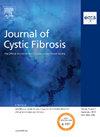Elexacaftor/tezacaftor/ivacaftor与心理健康:囊性纤维化基金会心理健康优先研究工作组研讨会报告。
IF 5.4
2区 医学
Q1 RESPIRATORY SYSTEM
引用次数: 0
摘要
背景:本报告总结了囊性纤维化基金会心理健康优先研究(PRIME)工作组 2023 年首次年会的情况。本次研讨会的重点是心理健康和 elexacaftor/tezacaftor/ivacaftor (ETI):我们回顾了现有文献,并确定了临床前工作、药代动力学/药效学、情绪/焦虑、生活质量/自我感知、神经心理症状、睡眠和症状管理方面的主要差距和研究设计注意事项:有限的研究发现,在抑郁、焦虑和认知的啮齿动物模型中接触调节剂后,行为会发生变化。报告平均变化的人类纵向研究一般显示没有变化或有所改善。然而,病例报告和单中心研究发现了报告新症状或症状恶化的亚组:未来的研究应侧重于了解 CFTR 在神经系统中的作用、确定临床前模型中 ETI 的影响以及机理研究。要确定整个生命周期中新症状/恶化症状的发生率和有效的管理策略,需要采用创新的方法、更大的样本和全面的评估。本文章由计算机程序翻译,如有差异,请以英文原文为准。
Elexacaftor/tezacaftor/ivacaftor and mental health: A workshop report from the Cystic Fibrosis Foundation's Prioritizing Research in Mental Health working group
Background
This report summarizes the 2023 inaugural annual meeting of the Cystic Fibrosis Foundation's Prioritizing Research in Mental Health (PRIME) working group. This workshop focused on mental health and elexacaftor/tezacaftor/ivacaftor (ETI).
Methods
We reviewed existing literature and identified key gaps and study design considerations in preclinical work, pharmacokinetics/pharmacodynamics, mood/anxiety, quality of life/self-perception, neuropsychological symptoms, sleep, and symptom management.
Results
Limited studies have identified behavioral changes with modulator exposure in rodent models of depression, anxiety, and cognition. Longitudinal human studies reporting mean changes generally show no change or improvement. However, case reports and single-center studies identify subgroups reporting new or worsening symptoms.
Conclusions
Future studies should focus on understanding the role of CFTR in the nervous system, defining ETI impacts in preclinical models, and mechanistic investigations. Innovative methods with larger samples and comprehensive assessments are needed to determine the incidence of new/worsening symptoms throughout the lifespan and effective management strategies.
求助全文
通过发布文献求助,成功后即可免费获取论文全文。
去求助
来源期刊

Journal of Cystic Fibrosis
医学-呼吸系统
CiteScore
10.10
自引率
13.50%
发文量
1361
审稿时长
50 days
期刊介绍:
The Journal of Cystic Fibrosis is the official journal of the European Cystic Fibrosis Society. The journal is devoted to promoting the research and treatment of cystic fibrosis. To this end the journal publishes original scientific articles, editorials, case reports, short communications and other information relevant to cystic fibrosis. The journal also publishes news and articles concerning the activities and policies of the ECFS as well as those of other societies related the ECFS.
 求助内容:
求助内容: 应助结果提醒方式:
应助结果提醒方式:


